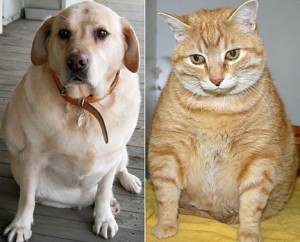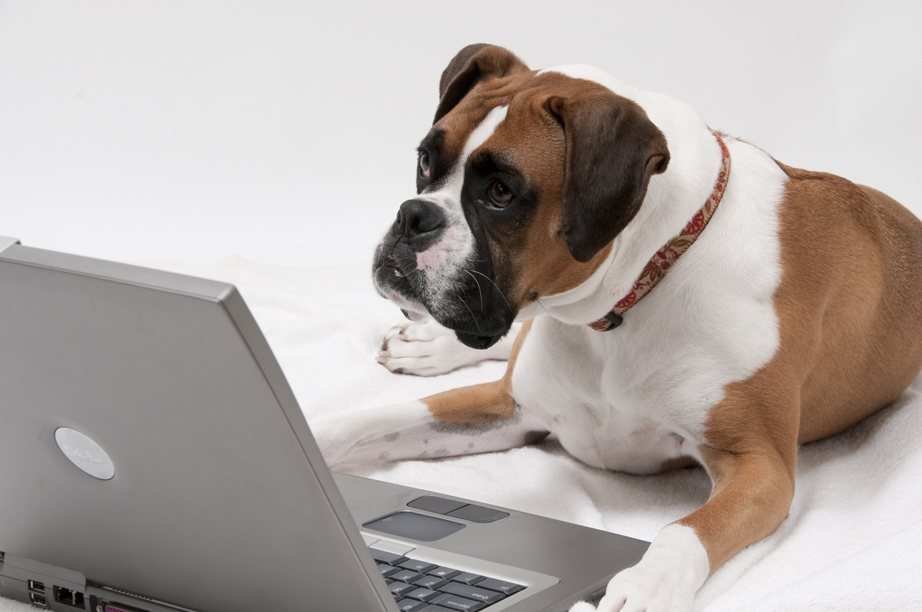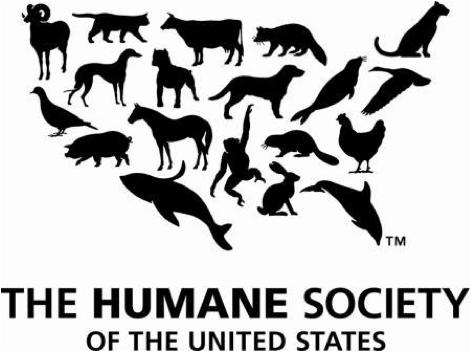 According to the National Pet Obesity Awareness Day Study conducted in 2010 by The Association for Pet Obesity Prevention (APOP), the rate of obese pets (those at least 30 percent more than their normal body weight) continues to steadily increase. This study found 22 percent of cats and 20 percent of dogs to be obese. Widening the classification to “overweight or obese” drives these rates to 53 percent for cats and 55 percent for dogs. As pet owners, we want to do everything we can to help our furry friends lose that weight and lead healthier lives. Just as obesity has severe health effects on humans, dogs and cats can suffer from ailments such as joint, respiratory and cardiovascular problems, diabetes, pancreatitis, as well as skin issues.
According to the National Pet Obesity Awareness Day Study conducted in 2010 by The Association for Pet Obesity Prevention (APOP), the rate of obese pets (those at least 30 percent more than their normal body weight) continues to steadily increase. This study found 22 percent of cats and 20 percent of dogs to be obese. Widening the classification to “overweight or obese” drives these rates to 53 percent for cats and 55 percent for dogs. As pet owners, we want to do everything we can to help our furry friends lose that weight and lead healthier lives. Just as obesity has severe health effects on humans, dogs and cats can suffer from ailments such as joint, respiratory and cardiovascular problems, diabetes, pancreatitis, as well as skin issues.
According to Dr. April Miles, DVM, there are steps you can take to get your pets on the right track to losing the appropriate amount of weight for their size, age, and breed.
1. Visit Your Veterinarian – Taking your pet to your veterinarian should be the first step in tackling a pets weight loss problem because the vet will be able to determine what the ideal weight should be. The vet will also be able to perform tests to rule out any possible underlying causes that could be contributing to the extra weight.
2. Pets Diet – Most veterinarians recommend reducing the amount of food you feed your pets by 25 to 30 percent. Even though you may be feeding them the amount listed on the back of the food bag, remember that those are just guidelines and your pet could require less than the recommended amount.
3. Pets Activity – Finding the time as a pet owner to give your furry friend the extra exercise he needs is an important factor in reducing his weight. Even an extra 20 minute walk per day can help to make a difference. The level of activity should be monitored by your veterinarian, as too much exercise can have an adverse effect on their health.
4. Track Your Pets Progress – If you were trying to lose weight yourself, you would most definitely keep a record of how you were doing. It’s the same for your pets, you’ll want to keep track of the goals reached, pounds and inches lost, as well as the daily exercise. Not only will this help you to see where you may be able to exert more effort, you’ll be able to show your vet the steps you are taking.






Pet Obesity is caused by the same food chemicals that cause human obesity
This was proven by a European filmmaker
The media wants you to believe that you and your Pet ate McDonalds everyday and suddenly became fat
Obesity is not the fault of the overweight person. In fact, it is almost impossible to lose weight in the USA due to Food Chemicals.
A filmmaker has showed how to reverse weight gain with a diabetes diet for NON diabetics in 10 countries
The diet reverses the damage from Food chemicals and causes weight loss.
If you or your Pet cannot lose weight it is not your fault
just google SPIRIT HAPPY DIET
Comments are closed.